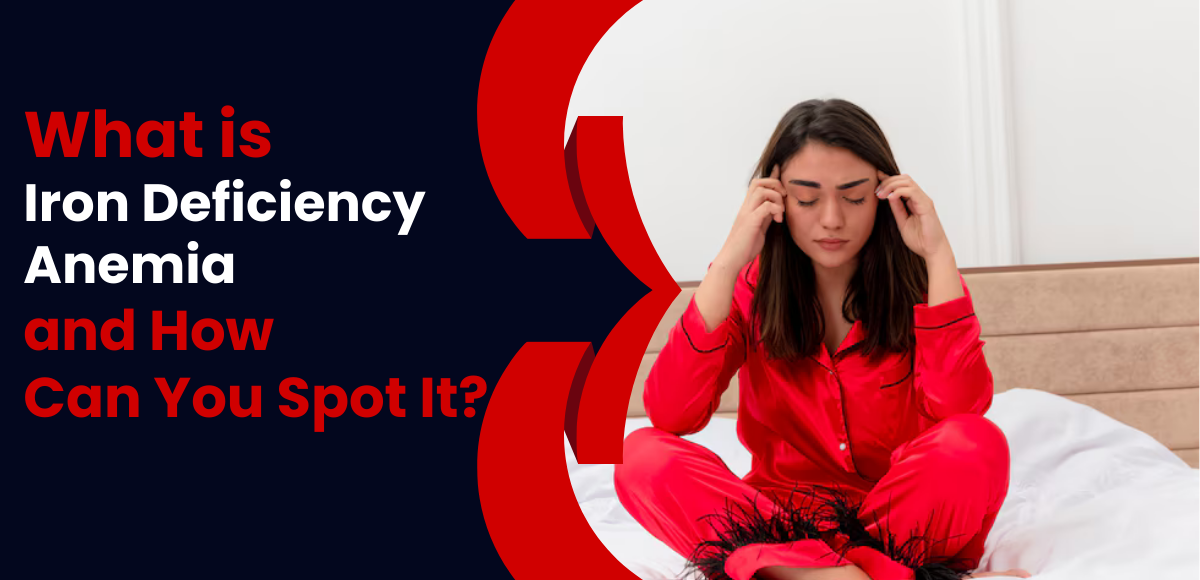
What is Iron Deficiency Anemia and How Can You Spot It?
What is Iron Deficiency Anemia and How Can You Spot It?
Iron deficiency anemia is a common condition that affects many people worldwide. If you’re feeling unusually tired, weak, or dizzy, it could be a sign of iron deficiency anemia. In this blog, we’ll discuss what iron deficiency anemia is, its symptoms, and how you can spot it. We’ll also touch on how an anemia specialist in Pune like Dr. Chandrakant Lahane, can help you manage and treat this condition effectively.
Iron Deficiency Anemia
Iron deficiency anemia occurs when you don’t have enough iron in your body to produce healthy red blood cells. Iron is essential for making hemoglobin, the protein in red blood cells that carries oxygen from your lungs to the rest of your body. Without enough iron, your body can’t make enough hemoglobin, leading to decreased oxygen delivery to tissues and organs.
Iron deficiency can result from various factors, including inadequate dietary intake, increased iron needs during pregnancy, or loss of blood through heavy menstruation or gastrointestinal bleeding. It’s important to address these underlying causes to effectively manage the condition.
Common Symptoms of Iron Deficiency Anemia
Spotting iron deficiency anemia can be challenging since its symptoms can be similar to other conditions. Here are some common signs to watch out for:
Fatigue and Weakness: Feeling unusually tired or weak is one of the most common symptoms. This happens because your body isn’t getting enough oxygen to your muscles and tissues.
Paleness: People with iron deficiency anemia often have pale skin and a pale complexion. This is due to a lower number of red blood cells and reduced blood flow to the skin.
Shortness of Breath: You might feel short of breath or dizzy when doing activities that didn’t previously make you winded. This is because your body is working harder to get oxygen to your tissues.
Dizziness or Lightheadedness: Low iron levels can lead to dizziness or feeling lightheaded, especially when standing up quickly.
Cold Hands and Feet: Poor circulation due to a lack of healthy red blood cells can cause your extremities to feel cold.
Headaches: The lack of oxygen reaching your brain can cause frequent headaches.
Brittle Nails and Hair Loss: Iron deficiency can affect your nails and hair, making them brittle and more prone to breaking.
Restless Legs Syndrome: Some people with iron deficiency anemia experience uncomfortable sensations in their legs, especially at night.
Diagnosing Iron Deficiency Anemia
If you suspect you might have iron deficiency anemia, it’s important to see a healthcare professional for a proper diagnosis. An anemia specialist in Pune, such as Dr. Chandrakant Lahane, can provide a comprehensive evaluation and accurate diagnosis. Typically, diagnosing iron deficiency anemia involves:
Blood Tests: Your doctor will order tests such as a complete blood count (CBC) to check your hemoglobin and hematocrit levels. They might also check serum ferritin levels to assess your iron stores.
Iron Studies: Additional tests, like serum iron, total iron-binding capacity (TIBC), and transferrin saturation, can help determine the extent of your iron deficiency.
Examination and History: Your doctor will review your medical history, dietary habits, and any symptoms you’re experiencing to help pinpoint the cause of your anemia.
Treating Iron Deficiency Anemia
Treatment for iron deficiency anemia focuses on increasing your iron levels and addressing any underlying causes. Here are common treatment options:
Iron Supplements: Your doctor may recommend iron supplements, which are usually taken in pill form. It’s important to follow the dosage and instructions provided by your healthcare provider.
Dietary Changes: incorporating iron-rich foods into your diet can help boost your iron levels. Foods high in iron include red meat, poultry, fish, lentils, beans, and leafy green vegetables. Combining these with vitamin C-rich foods like oranges or strawberries can enhance iron absorption.
Treating Conditions: If your anemia is caused by a condition, such as heavy menstrual bleeding or gastrointestinal issues, treating that condition is essential. Anemia treatment in Pune with an expert like Dr. Chandrakant Lahane can include managing these root causes effectively.
Medical Procedures: In some cases, more invasive treatments might be needed if there’s significant blood loss or if iron deficiency is severe. Your doctor will discuss these options if necessary.
Why See an Anemia Specialist?
An anemia specialist in Pune, such as Dr. Chandrakant Lahane, is trained to diagnose and treat various types of anemia, including iron deficiency anemia. They can provide personalized care, monitor your progress, and adjust your treatment plan as needed. Anemia specialists also have the expertise to identify and address any underlying health issues contributing to your anemia.
If you suspect you might be suffering from iron deficiency anemia or are experiencing symptoms, don’t hesitate to seek medical advice. Early diagnosis and treatment are crucial for managing the condition and improving your overall health and quality of life.
